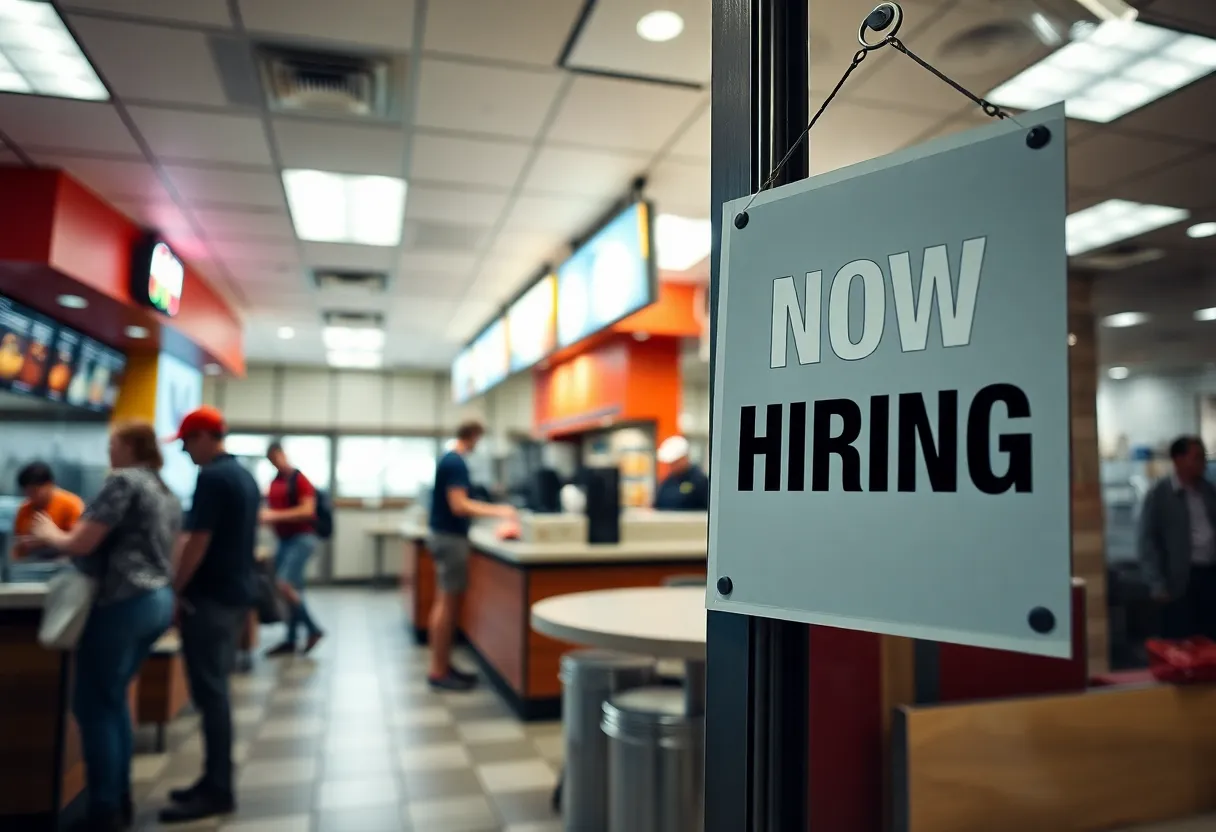News Summary
A study by the National Bureau of Economic Research reveals that California’s fast-food sector has lost approximately 18,000 jobs, a 3.2% decline, after the implementation of a $20 minimum wage on April 1, 2024. While the wage increase aimed to enhance worker conditions, critics highlight the unintended job losses in contrast to slight employment growth in other states. Governor Gavin Newsom supports the wage law despite the study’s findings, which have sparked debates about the true effects of minimum wage policies in the state.
California has witnessed significant job losses in its fast-food industry following the implementation of a $20 minimum wage, according to a study released by the National Bureau of Economic Research (NBER). The research indicates that approximately 18,000 jobs have been lost in the fast-food sector since the new wage law took effect on April 1, 2024. This translates to a 3.2% decrease in employment within California’s fast-food industry, contrasting with growth in similar sectors across the United States.
Researchers Jeffrey Clemens, Olivia Edwards, and Jonathan Meer conducted the study, concluding that these positions would likely still exist had the minimum wage not been increased. In comparison, fast-food employment in other U.S. states has shown an increase of around 0.10%. The data demonstrates a notable contraction in California’s fast-food employment, with reported declines between 2.3% and 3.9% since the enactment of Assembly Bill 1228, which established the state’s Fast Food Council and its authority to set and adjust wage levels.
The $20 minimum wage was a considerable rise from the previous rate of $16 an hour. California Assembly introduced AB 1228 in September 2023, which aimed at improving wage standards for fast-food workers and thereby enhancing their overall working conditions. Prior to the law’s introduction, California’s fast-food sector was growing at a similar pace to the national average
.
Despite the intentions behind the wage hike, critics are raising concerns about its impacts on employment opportunities in the sector. Historical evidence suggests that similar wage control measures have led to unintended economic consequences, including job losses. Opponents argue that the legislative move may harm businesses and employment in the fast-food region.
California’s Governor Gavin Newsom has publicly supported the $20 minimum wage law, deeming it a critical step toward achieving fair wages and empowering fast-food workers with better representation in the labor market. Nonetheless, Newsom’s administration refutes the conclusions presented in the NBER study. The deputy communications director for Newsom stated that the research in question derives from a think tank that has been criticized for disseminating misleading information regarding wage impacts.
Additionally, a separate study conducted by a professor at the University of California, Berkeley, indicates that workers covered by the wage increase have experienced wage gains of approximately 8-9% without significant negative consequences on employment for non-covered workers. This finding challenges the results published by NBER and suggests that the effects of the wage increase might be less severe than indicated.
In the wake of the wage increase, menu prices at fast-food establishments rose only an average of 1.5%, as per official reports. The increase in food prices suggests that the industry has managed to absorb some of the wage costs, though the ramifications on employment remain pronounced. Furthermore, the implementation of AB 1228 did not extend to smaller fast-food chains with fewer than 60 locations, which may have limited the broader employment impact across the sector.
After the introduction of the new minimum wage, the median number of weekly hours for fast-food workers in California reportedly decreased, raising concerns about potential significant annual income losses for those employed in the industry. Overall, while the wider California economy continues to align with national employment trends, the downturn evident in the fast-food sector markedly stands apart from the general economic landscape.
Deeper Dive: News & Info About This Topic
- Fox Business: Study Shows California’s $20 Minimum Wage Hike Cost State 18,000 Jobs
- Wikipedia: Minimum Wage in the United States
- Wall Street Journal: California Minimum Wage Resulting in Job Losses
- Google Search: California Minimum Wage Increase
- Newsweek: California Cities Minimum Wage Change July 1
- Encyclopedia Britannica: Minimum Wage
- Reason: California’s Minimum Wage Hike Cost 18,000 Fast Food Jobs
- Google News: California Minimum Wage 2025
- USA Today: Minimum Wage Increase July 1, 2025
- Google Scholar: California Minimum Wage Impact

Author: STAFF HERE COSTA MESA WRITER
The COSTA MESA STAFF WRITER represents the experienced team at HERECostaMesa.com, your go-to source for actionable local news and information in Costa Mesa, Orange County, and beyond. Specializing in "news you can use," we cover essential topics like product reviews for personal and business needs, local business directories, politics, real estate trends, neighborhood insights, and state news affecting the area—with deep expertise drawn from years of dedicated reporting and strong community input, including local press releases and business updates. We deliver top reporting on high-value events such as the OC Fair, Concerts in the Park, and Fish Fry. Our coverage extends to key organizations like the Costa Mesa Chamber of Commerce and Boys & Girls Clubs of Central Orange Coast, plus leading businesses in retail, fashion, and technology that power the local economy such as Vans, Experian, and South Coast Plaza. As part of the broader HERE network, including HEREAnaheim.com, HEREBeverlyHills.com, HERECoronado.com, HEREHollywood.com, HEREHuntingtonBeach.com, HERELongBeach.com, HERELosAngeles.com, HEREMissionViejo.com, HERESanDiego.com, and HERESantaAna.com, we provide comprehensive, credible insights into California's dynamic landscape.


